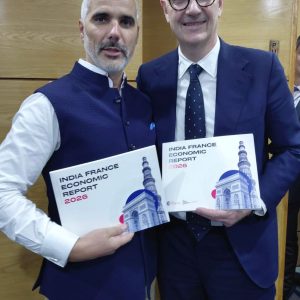The Income-Tax Bill 2025, introduced in the Lok Sabha on Thursday, seeks to streamline India’s direct taxation system by consolidating various provisions and creating a more transparent legal framework.
While the bill does not introduce major structural changes, it ensures stability and consistency in the taxation system. One key difference from the current Act is that although it specifies deductions for expenses such as rent, life and health insurance premiums, provident fund contributions, and home loans, it does not include a tax rate table for the old tax regime. Instead, only the new tax regime presents tax slabs in a tabular format.
Find Out How Much Tax You Need to Pay – Calculate Now!
Provisions for Senior Citizens
Under the Income-Tax Act 1961, senior citizens are entitled to a deduction of up to ₹50,000 for interest income earned from bank and post office deposits (Section 80TTB). Meanwhile, general taxpayers can claim a deduction of ₹10,000 for interest from savings account deposits (Section 80TTA).
The Income-Tax Bill 2025 consolidates these provisions under Section 153, ensuring that all tax benefits remain intact. The Central Board of Direct Taxes (CBDT) highlights that the updated bill simplifies eligibility criteria and deduction limits for different taxpayer categories, reducing the need to refer to multiple sections. This aims to enhance clarity and ease of use, especially for senior citizens.
Section 153 of the Income-Tax Bill 2025
According to Section 153, senior citizens can claim a tax deduction of ₹50,000 on interest income earned from savings accounts and time deposits in banks, post offices, and cooperative banks.
The bill also defines time deposits as those repayable after a fixed period, including fixed deposits and Senior Citizen Savings Scheme (SCSS) accounts.
For general taxpayers and Hindu Undivided Families (HUFs), the deduction is limited to ₹10,000 on interest from savings accounts only. Unlike senior citizens, they cannot claim deductions on interest earned from fixed deposits.
Additionally, no deduction under Section 153 is available for savings accounts held by or on behalf of firms, associations of persons (AOPs), or bodies of individuals (BOIs).
Provisions Removed
The Income-Tax Bill 2025 eliminates over 300 outdated provisions from the existing Income-Tax Act. Sections such as:
- 80CCA (deductions for investments in the National Savings Scheme)
- 80CCF (deductions for investments in long-term infrastructure bonds)
have been removed due to redundancy.
TDS and TCS Regulations
The bill proposes Tax Deducted at Source (TDS) regulations on various income types, including:
- Salaries
- Professional fees
- Interest income
- Rent
Additionally, Tax Collected at Source (TCS) will apply to specific transactions such as:
- Alcohol sales
- Tendu leaves and minerals
- Scrap materials
- Motor vehicle sales exceeding ₹10 lakh
- Foreign remittances over ₹7 lakh
Failure to comply with TDS/TCS requirements could result in:
- Being declared in default for non-deduction or non-payment of TDS/TCS
- A penalty of 1% per month on outstanding TDS/TCS amounts
The Income-Tax Bill 2025 marks a significant step towards simplifying tax laws, reducing redundancy, and enhancing taxpayer convenience while maintaining fiscal responsibility.











